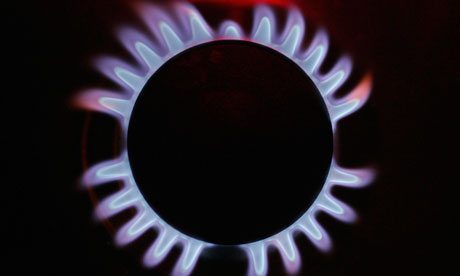It is an open secret in the electricity industry that Origin Energy is a gas company with a great marketing department. But when the company’s managing director Grant King last week called for Australia’s 20 per cent Renewable Energy Target to be scaled back, his company’s true colours were on display.
King argued that due to falling electricity demand, Australia may exceed the target and deliver a larger amount of renewable power proportional to other forms of energy. But just a few months ago Origin was arguing for the target to be deferred, saying it would be too hard to meet. And a few short years before that, the company was saying the target should be set in stone and the scheme left alone to provide investor certainty.
For a conservative industry where investment horizons can be measured in decades, this may seem like erratic behaviour. But when you factor in the rapidly changing face of Australia’s power sector and the global race towards clean energy, Origin is clearly feeling like it might have backed the wrong horse by gambling on gas as the generation source of choice in Australia.
King conveniently omitted from his comments over recent days that the cost of solar power halved last year, while the cost of gas doubled. This is part of a long-term trend that is not about to reverse any time soon. Meanwhile, Australia’s gas fields are exporting as much gas as possible to meet booming demand in countries like China and Japan which have a shortage of energy and don’t enjoy the same calibre of renewable energy resources that we enjoy locally.
While wind or solar farms may currently cost a bit more to build than a gas plant, they enjoy a lifetime of free fuel. Apart from the billions of dollars in investment and tens of thousands of jobs promised by the Renewable Energy Target, it is a very effective way for Australia to shield itself from potential fuel shocks in the decades to come. This is one of the reasons John Howard introduced the original policy back in 2001.
Origin are now focused on exporting as much gas as they can, and taking advantage of the rising global demand – and therefore rising price – of the commodity. This, along with the rapidly falling cost of renewable energy, is essentially pricing gas electricity generation out of the Australian market. But instead of changing horses, Origin is trying to have renewable energy generation neutered. To do it, they are happy to throw investment certainty out the window.
In comparison, Origin’s competitors have made the right investments and are leading the renewable energy race in Australia. AGL and TRUenergy, for example, both anticipated the changing dynamic of the energy market several years ago. TRUenergy has developed a portfolio of wind farms while AGL owns hydro and wind and has just secured support to build the country’s largest solar farm. Last week International Power, the owner of the Hazelwood coal-fired power station, underlined what most of the electricity industry is thinking – long-term investor certainty should trump short-term corporate self-interest.
And while King says scaling back the Renewable Energy Target would help consumers, it is a hollow promise. A few weeks ago the NSW government’s electricity regulator finalised prices for the year ahead. Of the 18 per cent rise in power prices, over half was for the cost of poles and wires, while just 0.3 per cent was attributed to ‘green schemes’. That’s nothing on what rising gas prices will do to electricity bills in years to come if we don’t diversify our energy mix with renewables.
The self-serving behaviour displayed by Origin over recent days puts it out of step with the rest of the energy sector and the rest of the country. Polls regularly show that around 90 per cent of Australians support clean energy, and over a million and a half Australian homes already have solar power or solar hot water systems installed. It’s time Origin recognised the clear trends in the Australian energy market, and stopped trying to swim upstream, against the current.
Kane Thornton is the deputy chief executive of the Clean Energy Council







